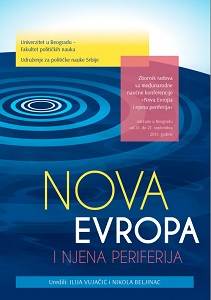
We kindly inform you that, as long as the subject affiliation of our 300.000+ articles is in progress, you might get unsufficient or no results on your third level or second level search. In this case, please broaden your search criteria.

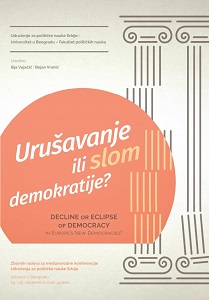
In this article the author analyses types of political regimes in states of former Soviet Union. The analysis is twofold: firstly – on discourse of global “democratic recession”; and “raise of authoritarianism”, and secondly – on political regimes in 12 post-soviet states. The author concludes that global democracy is going through a specific type of crisis. That crisis is also reflected in the zone of transition states. Strong authoritarian countries, such as Russia and China, increase their political and economic influence in the transitional post-Soviet states, which also influences their political regimes. The state of regimes in ex-soviet states is followed by their geopolitical tendencies to merge in political and economic alliances which cut-across Eurasia. States that are in a process of democratic consolidation and whose regimes are hybrid are inclined to EU, while the (semi)consolidated authoritarian states are more inclined to Russia or integration to Eurasian economic block.
More...
During more than 25 years of pluralistic party system existing in Serbia and in Vojvodina, a large number of parties and non-government organizations, which put Vojvodina’s position and its improvement in the focus of their acting, have been formed. Over time, parts of these efforts have been taken over by the parties that were formed outside of Vojvodina,, achieving better election results than the “original autonomists”, while diluting those views, they also legitimized them in political struggles. The second group, parties of national communities in Vojvodina, once natural allies to autonomist options, has also joined this process, achieving their particular interests by ignoring and bypassing provincial interests. The third group, parties – deniers of regional particularities have been ambivalent about the question of the province from the beginning of the multiparty system in Serbia/Vojvodina – in the opposition they seek reduction of the rights of Vojvodina,, if they are in power, they try to at least bureaucratically increase the level of competence, in order to efficiently exploit provincial resources (public enterprises, institutions and companies), strengthen personal position within the party and finance their parties. 2016 elections were held in such an environment. Democratic/liberal/civic option has emerged in several columns, with a set of unrealistic goals, parties of national communities with the desire to recognize the winning side, the third group with the intention to strengthen the monopoly position of state-level by installing the provincial government and minor Vojvodina’s options to acquire citizenship rights. In a political fight without advocacy for clear political objectives, which has been reduced to questioning what amount of power should the ruler be showered by and not understanding what goal of the election is, democratic parties’ options, especially those with autonomist and national precursors, have easily given up the efforts to amend the status of Vojvodina. For a longer period of time the autonomist idea has been defeated. Whether it is fatal or not is the theme of this article.
More...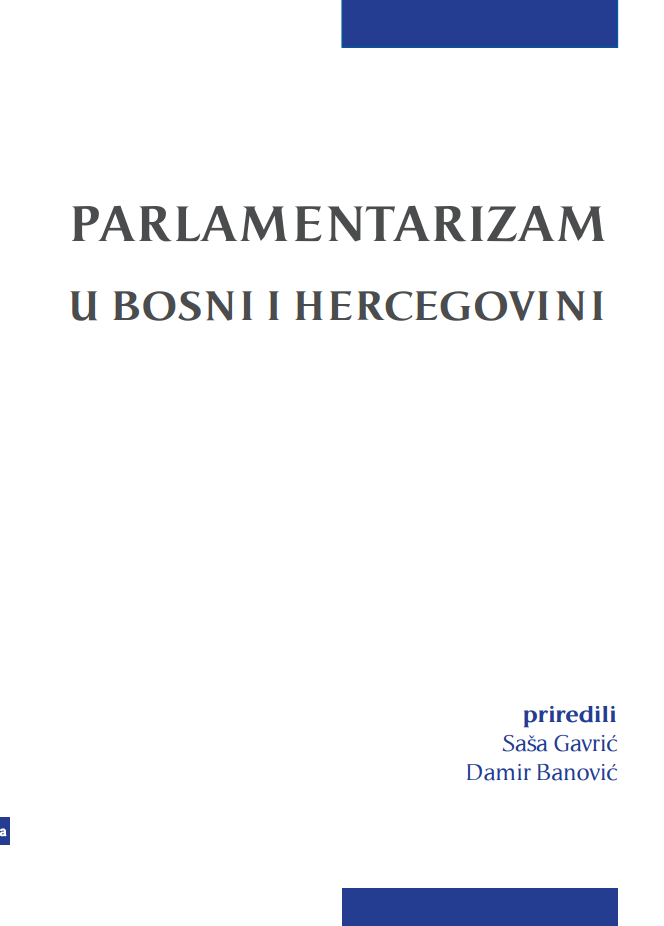
U ustavnopravnom ustrojstvu Bosne i Hercegovine, tzv. entitetsko glasovanje i postupak zaštite vitalnog nacionalnog interesa, kao „veto mehanizmi“ pri odlučivanju predstavljaju veoma važnu ulogu u učinkovitom djelovanju parlamenata na državnoj i entitetskoj razini. Stoga se ovaj rad bavi ustavnim definiranjem parlamentarnog odlučivanja na državnoj i entitetskoj razini u Bosni i Hercegovini, postupcima parlamentarnog odlučivanja, postojećim „veto mehanizmima“ i posljedicama koje oni proizvode.
More...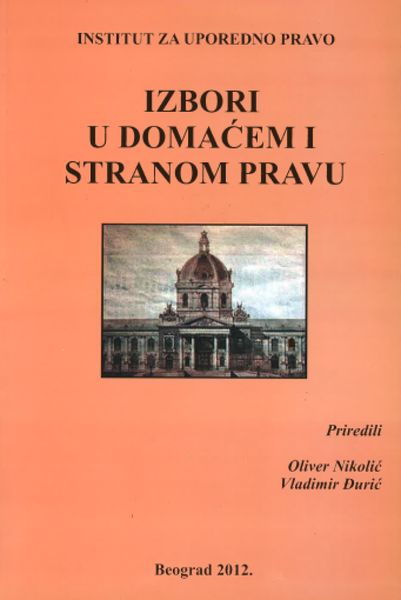
Although elections enable voters to shape the political structure of a representative body, the conduct of elections should not be the end - but the beginning of continuous communication between the citizens and parliamentarians. Therefore, the goal of this article is to explore and identify institutes, which would facilitate the relationship and communication between citizens and members of parliament after elections. The focus of the paper is on the analysis of the Serbian parliamentary practice, and the assessment of the implementation of the institutes of Parliamentary Law, while indicating their implementation through the current practice at the National Assembly of the Republic of Serbia. In addition to public hearings, assembly working body sessions out of the Parliament headquarter, opening of the MPs’ offices in provinces, submission of the applications and proposals, citizens’ participation in the legislative process, the paper points out important problems that, in the Serbian parliamentarian practice, prevent, the realization of constitutional right of voters to propose laws. The article observes the tendency, dominated in the last few years, that endeavors to “open” the National Assembly (as an institution) to the citizens, according to the good practice implemented and proved in foreign parliaments. However, this does not imply an adequate contact between citizens and Members of Parliament (individually). After indicating the standards of the Inter-Parliamentary Union and results of recent global surveys, the conclusion of the paper identifies opportunities for further parliamentary development that would support the improvement of relations between citizens and their representatives in the Parliament after the elections.
More...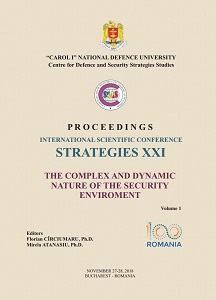
It is necessary to assess the risks generated by various microorganisms that can be used as biological weapons and to understand the process of their development and the use of biological agents over time. Biological agents used for military purposes may be more powerful than conventional weapons and chemical weapons. Over the past century,advances in biotechnology and biochemistry have simplified the development and production of such weapons, and genetic engineering probably holds the most dangerous potential for making biological weapons. Ease of production, broad availability of biological agents and technical knowledge have led to the proliferation of biological weapons and a growing desire among developing countries to hold them.
More...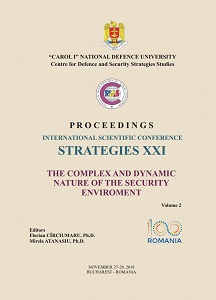
The specific means of war is the armed struggle, which is destructive. By triggering a war, politics pursues its aims, but uses other means, the means of armed struggle. Armies are closely linked to technological developments. They are the first beneficiaries of technical and scientific progress. Contemporary military conflicts have highlighted new orientations and concepts of military action, characterized by complexity,mobility, dynamism, the use of high technology and almost totally professional forces,integrated actions of all categories of forces and arms genres. The space for the armedstruggle in its terrestrial, aerial, maritime and cosmic dimension tends to becomeincreasingly integrated, completely cybernetic, with increasing tendencies to expand into theelectromagnetic environment based on spectacular developments in the technical-scientificfield.
More...
The social networks generated an environment which empowers both citizens and politicians and puts diplomats under public scrutiny in a way that the main stream media was unable to do previously. Social media is being used in ways that shape politics,business, world culture, international relations, education, careers, innovation, and more.One of the ways that social media has transformed politics is the sheer speed at which news,poll results and rumors are shared. Political campaigns are now influenced by every story,whether true or not, that gets spread around social media. It’s getting more and more difficult to separate actual news from fake news online. Social media makes this distinction especially confusing. The constant stream of links and rumors about political leaders and candidates is a mixture of truth, lies, satire and speculation. As part of this worldwide campaign, states disseminate their influence according to their objectives. For instance, Russian social media posts have a visible influence in Baltics, Ukraine, and other nearby states through a variety of means, including traditional and social media. The purpose of this paper is to get a better understanding of the nature and effectiveness of pro-Russia outreach on social media and identify counter-messaging opportunities. There are other more nuanced questions about the role of social media and online communities in International Relations whose effects are not so easily apparent. International Relations as a discipline has only recently begun to engage with the growth of social media and its implications for global politics. But if the current climate is anything to go by, social media is well on the way to disrupt the traditional channels and methods of diplomacy.
More...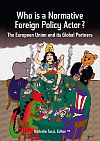
Although China’s foreign policy behaviour is often judged in terms of its compliance with Western norms, the evolution of China’s own norms meritsserious attention. From early times to the present day, China’s international action has been structured in terms of norms. When China’s recent behaviour is described in terms of the normative structure proposed by Tocci in the introductory chapter, its unique perspective is highlighted, although tentative questions concerning the structure are also raised. Moreover, the case of China challenges the general interpretation of norms because it emphasises relationships as essentially interactive. From the Chinese perspective, international relations are not an area for the application of abstract norms to cases, but rather a set of particular international relationships, with concrete obligations defined within the context of each relationship.
More...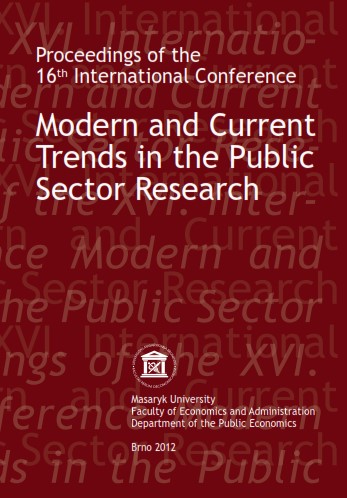
The paper presents possibilities and limits of introducing experimental methods in measuring propensity to engage in and punish corrupt behavior. We are inspired by results of the multicultural experiments run to date. Our experiment is inspired by Cameron et al (2009), which took place in Australia, Indonesia, India and Singapore. It takes a form of a simple sequential game in which three players are involved. The decision of each player has an impact on the behavior and profit of the other players. Results of the experiment are in line with results of replicated experiment. We found several differences between the behavior of the Czech and Slovak participants. Particularly, the Czechs seem to be less tolerant to corruption behavior they witness.
More...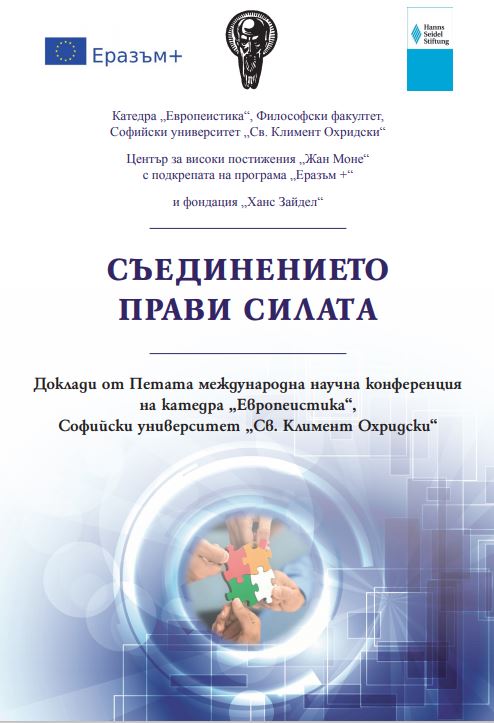
This paper aims at analyzing the application of behavioral insights to the policy of a supranational regulating body and the way in which the opportunities, challenges and approaches are similar or different in terms of the interpretation in individual governments around the world. Dual process theory is examined in respect to its usefulness in informing policy and an analysis is made regarding policy areas where it might exhibit most effectiveness. Examples are presented of behavioral insights principles and instruments built in specific policy and regulatory documents. Finally, concerns are raised in relation to the libertarian paternalism approach, transparency and ethics of the policy initiatives informed by behavioral insights.
More...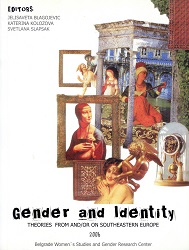
IF WE UNDERSTAND SELF AS A COMPLEX CONSTRUCTION, EXPRESSED AND CREATED THROUGH THE PROCESS OF SELF-REPRESENTING AND THAT THE ESSENTIAL GENRE OF SELF-REPRESENTING IS NARRATIVE, THE IDENTITY WILL APPEAR AS A MATTER OF RELATIONS MADE WITHIN OUR LINGUISTIC COMMUNITY, NOT OF SOME “PRIMORDIAL SUBJECT” TO WHICH ALL INDIVIDUAL IDENTITIES SHOULD RESPOND. THAT'S WHY INTROSPECTION, TENDING TO FIND SOME "REAL GROUND OF THE SELF" SEEMS HOPELESS… TWO EXTREME EXAMPLES IN SERBIAN MEDIEVAL HISTORY AND MYTHOLOGY ILLUSTRATE THE ROLE OF WOMAN AS A REAL TRAUMATIC ONE WITHIN THE SYMBOLIC CONSTRUCTION. THE FIRST ONE IS THE WELL KNOWN MYTH THE BUILDING OF SKADAR – ALREADY FULLY ANALYZED IN BRANKA ARSIĆ'S TEXT "QUEER SERBS" –AND THE SECOND IS A HISTORICAL PERSON – DAMNED JERINA. IN BOTH CASES, THE TOPIC IS THE BUILDING OF A TOWN/FORTRESS AND THE KEY ROLES ARE GIVEN TO WOMEN. WHAT I WOULD LIKE TO PROBLEMATIZE HERE, RELATED TO THESE EXAMPLES, IS THE MANIPULATION WITH GUILT IN STRUCTURING THE FEMALE IDENTITY AND TO TRY TO SHOW HOW THIS PROJECTION OF GUILT TO THE OTHER FIGURED IN THE EX-YUGOSLAV CONFLICT AND POLITICAL DISCOURSE.
More...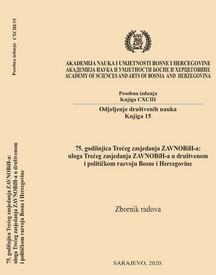
The Third assemblage of ZAVNOBiH was held from 26th to 28th April in liberated Sarajevo, in the ceremonial hall of the former Sokolski dom. The session was attended by 155 councilors. Decisions were made at the Third session which completed the state organization of Bosnia and Herzegovina on the idea of ZAVNOBiH, as a national representation and bearer of the will of the people of Bosnia and Herzegovina to achieve their own state development. Two historic decisions were made at the session: ZAVNOBiH grew into the National Assembly of Bosnia and Herzegovina, and the Presidency of ZAVNOBiH became the Presidency of the National Assembly of Bosnia and Herzegovina. All councilors who had a councilor’s power of attorney for the Third assemblage of ZAVNOBiH became the first deputies of the National Assembly of Bosnia and Herzegovina. The government was formed after the National Assembly of Bosnia and Herzegovina had adopted the Law on the National Government of Bosnia and Herzegovina on the 27th April. With the election of the first government, federal Bosnia and Herzegovina constituted it’s executive power, and with the transformation of the Third assemblage of ZAVNOBiH into the National Assembly, the statehood of Bosnia and Herzegovina was completed, which was founded by the decisions of the First session of ZAVNOBiH in 1943. In addition, according to the official papers of this assemblage, special attention was paid to the presentation of speakers who pointed out the achievements of the National Liberation War.
More...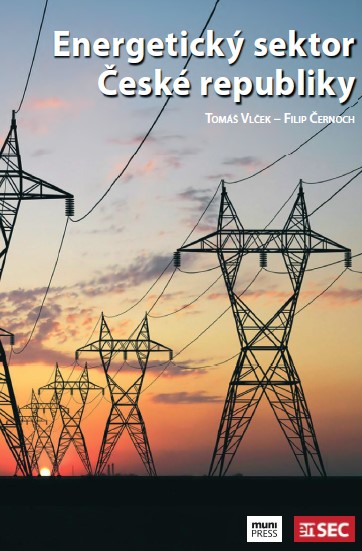
Energetický sektor libovolného státu (Česko nevyjímaje) představuje živou arénu, v níž se střetávají zájmy a priority pestrého spektra aktérů – státními úřady počínaje a soukromými firmami konče. Stručná charakteristika těchto aktérů, jejich kompetencí, vlivu, zájmů a aktivit proto patří k logickým částem této knihy. Vzhledem k šíři tématu se nicméně zaměříme pouze na dvě kategorie aktérů. V prvé řadě na vládní instituce a úřady, tedy Ministerstvo průmyslu a obchodu, Ministerstvo životního prostředí, vládu samotnou a také některé regulatorní úřady. V druhé části se potom budeme věnovat českým politickým stranám, jejich postojům k energetickým otázkám a roli ve formulaci základních strategických dokumentů země. V druhé části kapitoly se potom budeme věnovat legislativnímu rámci českého energetického sektoru, včetně představení a zhodnocení základních koncepčních dokumentů a zpráv.
More...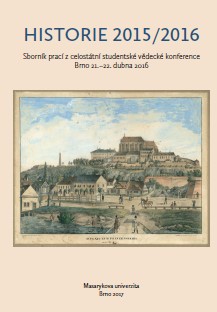
The dynamics of political and religious development of 16th century England anticipated the arrival of series of changes, conflicts and crises that were to change the country beyond recognition. Despite those dynamic times, a timeless character of William Cecile, the closest adviser of Queen Elizabeth I., won recognition through his intellect, political contacts and dispassionate point of view. Even in the times of the threat of the English Queen’s reign, it was the mentioned William Cecile who was able to consider a possible unification of the island kingdoms under one ruler or a dynasty. Therefore, this research examines various aspects of William Cecile’s unification vision that was put into the context of the political situation of 16th century Europe. The core of this work is formed by the analysis of selected historical sources from edition A Collection of State Papers relating to Affairs in the Reigns of King Henry VIII., King Edward VI., Queen Mary and Queen Elizabeth: From the Years 1542–1570 by Samuel Haynes.
More...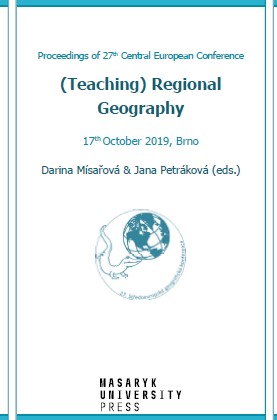
With regard to suprising results of Parliamentary elections in Slovakia their geographic dimension is also important. The aim of this article is to analyze the milieu of elections and the subsequent spatial differentiation of the results of the 8 parties which were successful to enter the Parliament.
More...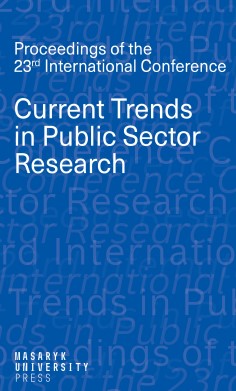
In democratic countries, the relationships between the procedures in both foreign policy and economic exchange should resonate with each other. The opportunity to analyze this hypothesis is used in the case of the Czech Republic’s export to two countries. Although both of them find themselves in an armed conflict, the premise of the Czech Republic’s political approach towards each of them is extremely different. Ukraine is considered the state, which is supported by both the Czech Republic and the European Union, whereas the Al-Assad regime in Syria is often politically condemned and political sanctions are imposed on it. The analysis of the data carried out by The Czech Statistical Office on the statistical value of export confirms the following essential premise: the worsened political relationships have a strong impact on the reduction of exports. This trend is less visible in the case of Ukraine, which is politically supported. In the case of both countries, the factor expressing the development of the internal situation is visible. In the case of Syria, a certain minimum value of cooperative willingness has been identified which is not affected by political proclamations, but rather by an actual possibility to physically export.
More...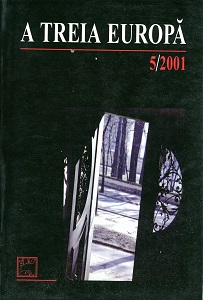
În anul 2000 Centrul Cultural Român din Budapesta a fost gazda unei suite de întâlniri ale intelectualilor maghiari și români. Din inițiativa și prin efortul scriitoarei Anamaria Pop, la vremea aceea directoarea prestigioasei instituții, s-au așezat la aceeași masă scriitori, politologi, sociologi, filozofi, istorici, critici literari din cele două țări, dezbătând teme de interes comun și de stringentă actualitate. Ultima dintre aceste întâlniri, desfășurată la începutul lunii decembrie și consacrată ideii de elită intelectuală („Elitele intelectuale între Est și Vest. Mai există loc pentru cultura politică la sfârșit de secol XX ? ”), a reunit nume de marcă ale vieții culturale din România și Ungaria. Din partea română au participat prof, univ dr. Andrei Pleșu, director al Colegiului Noua Europă, Horia-Roman Patapievici, filozof, Mircea Cărtărescu, scriitor, și Sorin Antohi, politolog, profesor la Universitatea Central-Europeană din Budapesta. Din partea maghiară au onorat invitația Centrului Cultural Român Konrâd György, scriitor, președintele Academiei de Arte din Berlin, Göncz Ârpâd, scriitor, ex-președintele Ungariei, Molnâr Gusztăv, politolog, și Hankiss Elemér, sociolog. Moderatorul întâlnirii afost prof. Sorin Antohi, iar traducerea afost asigurată de către Szâsz Tibor. în a doua parte a întâlnirii au fost lansate volumele lui Andrei Pleșu, Jurnalul de la Tescani și Limba păsărilor, apărute la editurile Koinônia din Cluj, respectiv Jelenkor din Pécs, ambele în traducerea prof. univ. Horvâth Andor. Au citit câte un fragment reprezentativ din cele două cărți, în maghiară și română, scriitorii Esterhâzy Péter și Mircea Cărtărescu. Au fost de față directorii celor două edituri, reprezentanți ai mass-media și ai corpului diplomatic, un numeros public.
More...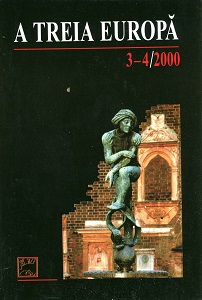
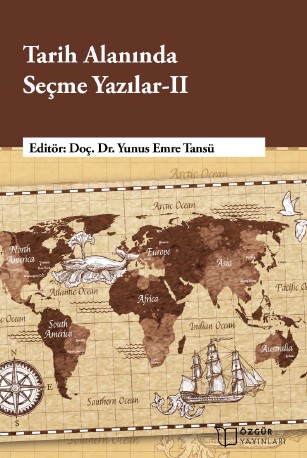
1912 yılında Muğla’da doğan Hamza Sadi Özbek İlk ve Orta Okulu Muğla’da ve Liseyi de İzmir’de tamamladıktan sonra Ankara Maliye Okulu’na girmiştir. Buradan mezun olduktan sonra Aydın’da Tahsisat Müdürlüğünde memuriyet görevine başlayan Hamza Sadi Özbek bu görevde iken Türk milliyetçiliği üzerine yaptığı faaliyetlerden dolayı 1944 yılında” Irkçılık ve Turancılık Davası” ndan dolayı tutuklanıp İstanbul’da yargılanmış ve ceza almıştır. 1947 yılında Milaslı Halide Hanım ile evlenip bu evlilikten 3 çocuk sahibi olan Hamza Sadi Özbek 1950 yılından itibaren Muğla’da Maden İrtibat Memuru olarak çalışmaya başlamıştır. 14 Mayıs 1950 seçimlerinde bağımsız Muğla Milletvekili adayı olan Hamza Sadi Özbek 1951 yılında da Muğla’da Türk Milliyetçiler Derneği’nin kurucuları arasında yer almıştır. 1965 yılında tekrar Adalet Partisi’nden Muğla Milletvekili aday adayı olan Hamza Sadi Özbek 1971 yılında Muğla’da vefat etmiştir. Diğer yandan daha lise yıllarında Türk milliyetçiliğine ilgi duymaya başlayan ve bu konuda şiirler yazan Hamza Sadi Özbek 1941 yılında Muğla’da yayınlanan Muğla’da Halk Gazetesi’nde Türkçülük adlı köşesinde altı tane, yine 1941 yılında aynı gazetede Vazife adlı köşesinde bir tane ve 1942-1943 yıllarında da yine aynı gazetede fikirler adlı köşesinde Türk milliyetçiliği üzerine yedi tane yazı yazmıştır. Bu yazıları ile Hamza Sadi Özbek Muğla’da Türk milliyetçiliğinin gelişmesine ve kökleşmesine öncülük eden bir fikir adamı olarak tarihteki yerini almıştır.
More...